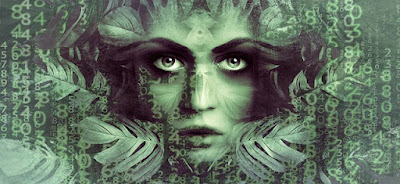Back in 1970, we celebrated the first Earth Day. I thought it a strange thing. What were we celebrating? Turns out that it united groups around the country who had been fighting pollution, oil spills, etc. Earth Day created a platform for people who cared about taking care of the earth. Some looked at it as saving the earth and for others it was about doing a better job of taking care of what God gave us. But it morphed into something more. We started to hear about the imminent cooling of the Earth and dire predictions of a coming time of extensive glaciation, due to the cooling effects of aerosols and orbital forcing. But science didn’t back that up those claims, so the message changed to global warming. When science didn't back up these predictions either, this earth-religion changed its name to climate change. Now it’s about saving the earth and keeping people safe.
The climate-change earth religion isn’t something new. If we look back in history, we see a wide range of peoples and beliefs who fall into this group. This includes paganism (polytheistic, nature-based religion); animism, (worldview that believes all living things possess a spirit including: people, animals, and plants); and Wicca which embraces the concept of an earth mother goddess.
Ancient Earth worship deities
In Greek mythology, Gaia (also spelled Gaea) is the representation of the Earth. Her title is goddess of the earth, mother of all life. Similarly, Tellus, also called Terra Mater, is ancient Rome’s version of the earth goddess who is often pictured reclining with a cornucopia. But ancient Greece and Rome weren’t the only ones who worshiped the Earth rather than the Creator God. Pachamama is another Earth goddess. This one, according to Inca legend, is an ever-present and independent deity. She was believed to be the creative power that sustained life or took it away with the ability to control fertility and even cause earthquakes. Prithvi Mata known as “the Vast One” is the Sanskrit name for the Earth as well as the name of a Hindu goddess (as well as in some branches of Buddhism). The Hopi believed in Kokyangwuti, Spider Grandmother, who along with their Sun god Tawa created the Earth and its creatures.
Christian stewardship
Christian stewardship refers to the Christian's responsibility in taking care of and using the gifts God has bestowed on us. This includes the Earth which God created as well as
the things on the earth. We are charged to be good stewards or managers. But we
must be careful to hold fast to the truth of God’s Word and not be swayed by worldly wisdom or carnal thinking. 2 Peter 2:7 says that "the heavens and earth that now exist are stored up
for fire, being kept until the day of judgment and destruction of the
ungodly." All our works, the good deeds we've done will be tested by fire, and only things eternal will survive the test.
Set your minds on what is above, not on what is on the earth. For you have died, and your life is hidden with the Messiah in God (Col. 3:2-3).
Believers need not fear climate change. We need not worry about saving the Earth. Instead, we should be seeking to save souls, and to live for Christ. If we do that, we will care for the earth and care about things eternal. Ask yourself, which are you putting most effort into: Saving the earth or saving souls.
About The Inheritance
Written within the allegorical tradition of classics like Pilgrim's Progress, The Inheritance offers a literal but symbolic story for today's fantasy enthusiasts. This cleverly devised tale doesn't tell you what to think, but stimulates thought as to why you believe what you believe in your own quest for the Eternal City. The Inheritance is an ideal discussion starter for youth groups, homeschoolers, and families who enjoy meaningful discussions.
Photo credits: pixabay,



